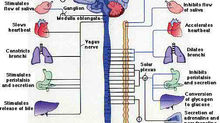Aaron Beck CBT
- tomjlynam

- Oct 2, 2015
- 2 min read
Depression.
A dancer, having been accepted into a prestigious school after years of devotion and dedication, no longer feels the desire to dance.
A lover of music, who would become joyous and animated hearing her favourite bands can no longer bear to play them.
These seemingly strange shifts in behaviour which are inconsistent with the individual’s normal values and actions are symptoms of the underlying condition of depression. In association with the condition of depression we also see biological drives such as sex, sleep and hunger inhibited. With regards to the ‘social instincts’, these are much diminished; attraction to other people and the desire to share their company are reduced or extinguished.
The about-face of normal behaviour, pleasures and urges is initially puzzling. In trying to understand the hallmarks of depression, the prominence of sadness, apathy, anxiety, we may attempt to address each of its phenomena in turn.
Aaron Beck, one of the forerunners of Cognitive Behavioural Therapy (CBT) asked the question; ‘Is painful emotion a catalyst for depression?’ States of suffering such as anxiety, nausea and physical pain may encourage depression over time although many people are able to experience these negative states and do not exhibit depressive symptoms. Even the emotion most closely associated with depression, sadness, rarely causes the cessation of biological and social instinctual drives.
What are we, then, to make of this? What is it that makes one person’s exposure to suffering in one way or another more likely to develop depression than another person exposed to the same experience? And if the cause cannot be pinned upon a particular negative state, then what may be the defining factor in someone experiencing depression?
A person’s thinking precludes any receiving of suffering.









Comments